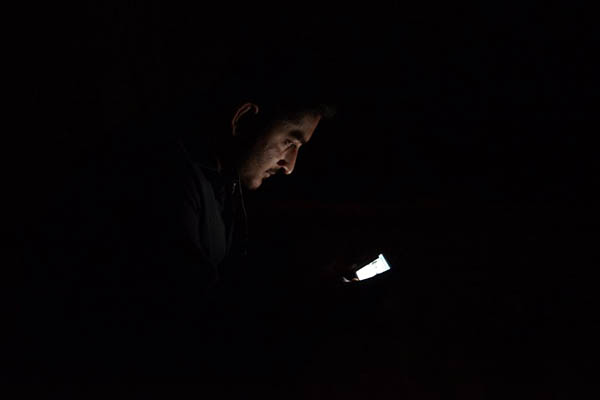
Farooq Naeem—AFP
Power restored after a few hours as state minister of water and power apologizes for outage.
An apparent rebel attack on a key power line plunged around 80 percent of Pakistan into darkness on Sunday, the latest reminder of the country’s crippling energy crisis.
The power failure, one of the worst Pakistan has experienced, caused electricity to be cut in major cities nationwide, including the capital Islamabad, and even affected one of the country’s international airports. It came as a fuel crisis grips the country, forcing Prime Minister Nawaz Sharif to cancel his trip to the World Economic Forum in Davos.
The latest power failure began after midnight when a transmission line connected to the national grid was damaged in an explosion, officials said, apparently carried out by a separatist group in Balochistan province. A senior official at the national grid station in Islamabad said around 80 percent of the country was hit by the power outage, while an AFP reporter in Lahore said the city’s international airport also suffered a blackout, though flights were not affected.
“The fault in the system was caused by a main transmission line being blown up in Balochistan,” Minister of State for Water and Power Abid Sher Ali said. Ali apologized for the outage, and blamed rebels in Balochistan’s Naseerabad district.
Balochistan, Pakistan’s largest but least developed and most sparsely populated province, has been wracked for decades by a separatist insurgency that was revived in 2004. The separatists believe that locals do not receive a fair share of the province’s energy and mineral wealth, while rights groups accuse the government of extra-judicial detentions and killings of activists.
Electricity was later restored across the country, a spokesman for the national power company said, with all power grids online except for two nuclear power plants, which would be fully operational by the end of the day.
“The blowing up of two power pylons in Naseerabad last night created a backward surge which affected the system,” the spokesman said. “It was an act of sabotage.”
Pakistan’s electricity distribution system is a complex and delicate web and a major fault at one section often leads to chain reactions and breakdowns of power generation and transmission. In addition to chronic infrastructure problems, the energy sector is also trapped into a vicious cycle of “circular debt” brought on by the dual effect of the government setting low electricity prices and customers failing to pay for it. State utilities therefore lose money, and cannot pay private power generating companies, which in turn cannot pay the oil and gas suppliers, who cut off the supply.
The fuel crisis began last week when Pakistan State Oil was forced to slash imports because banks refused to extend any more credit to the government-owned company, which supplies 80 percent of the country’s oil. The shortfall led to long queues of angry motorists at petrol stations, though these have since dissipated as fuel supplies have reached the pumps.
Solving Pakistan’s energy crisis was a key campaign pledge for Sharif in the run-up to the 2013 general elections, and the shortage is heaping fresh pressure on his government. Islamabad signed agreements with long-term ally Beijing last year to pave the way for Chinese state-owned companies to help build at least four new power stations in Pakistan, but U.S. sanctions against Tehran over its nuclear program and Pakistan’s own lack of cash have hampered the completion of a multi-billion-dollar gas pipeline from neighboring Iran.
